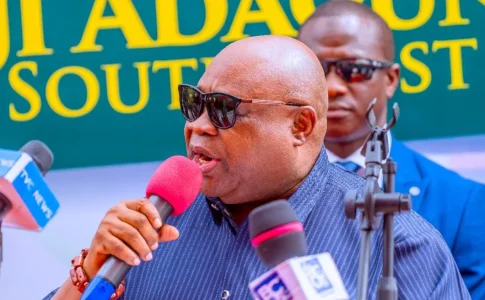
The Rivers State Assembly, under the leadership of Speaker Martin Amaewhule, took a bold step on Monday, overriding Governor Siminialayi Fubara's veto and passing the Rivers State Local Government (Amendment) Bill into law. This legislative move marks a significant development in the state's political landscape and underscores the tensions between the executive and legislative branches.
The journey of the Local Government (Amendment) Bill through the legislative process has been tumultuous. Initially passed by the House on March 13, 2024, the bill faced opposition from Governor Fubara, who declined to give his assent. However, undeterred by the governor's veto, the Majority Leader, Hon. Major Jack, represented the bill for debate once again on Monday.
In a decisive vote, the House, with a two-thirds majority, chose to assert its authority and pass the bill into law, invoking Section 100(5) of the 1999 Constitution of the Federal Republic of Nigeria, which empowers the House to override the governor's veto.
The implications of this legislative action are multifaceted. It not only signifies a victory for the Assembly but also raises questions about the balance of power between the executive and legislative branches in Rivers State. Moreover, it sheds light on the strained relationship between the Assembly, led by Speaker Amaewhule, and Governor Fubara.
In addition to passing the Local Government (Amendment) Bill, the Assembly also screened and confirmed nominees for the positions of Chairman and Members of the Assembly Service Commission. This further underscores the Assembly's exercise of its legislative authority and its commitment to shaping the governance structure of the state.
The backdrop of these developments is the ongoing political dynamics within Rivers State. With 27 Assembly members aligned with Minister of Federal Capital Territory (FCT), Nyesom Wike, tensions have simmered between the Assembly and the governor, culminating in threats of impeachment against Governor Fubara.
Furthermore, the passage of the Rivers State Assembly Service Commission (Amendment) Bill, which grants the House the power to appoint the chairman and members of the commission, highlights the Assembly's efforts to assert its independence and autonomy.




